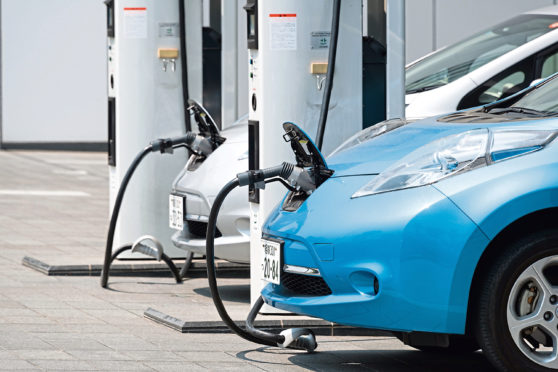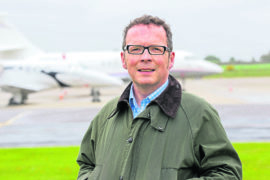CREDS is the Centre for Research into Energy Demand Solutions.
On July 5 it published a report which concluded that, faced with increasing demands for energy, there was no silver bullet, no one policy, no one lever we could pull which would see us on the road to a sustainable and secure energy solution.
Most of us know that and the report in this respect doesn’t tell us anything we’re not already aware of or at least suspect.
However, CREDS also shines a light on policy and techniques used to introduce and measure transport impacts and sets out how, with a degree of foresight, the right mix of better land use, planning and legislation we can encourage individuals to lead healthier lifestyles. And, in so doing lay the foundations for future generations.
Ultimately, we need to arrive at a situation where using sustainable transport in a sustainable way becomes first choice and not because the ‘other half’ has the car, or it has broken down.
That said, we need to do more than simply convert to electric cars or cross our fingers. Left to our own devices, we’ll clog city streets, motorways and school kerb sides with electric cars, just as ably as we’ve done so with internal combustion engines.
Lifestyle choices need to be aided and encouraged by government policy. In practical terms it means significantly higher levels of investment in transport infrastructure, on rail, bus and air. Investment, of course, cannot be made in isolation, it should be done alongside long-term local authority development plans, plans which in and of themselves should be based around minimising resource consumption and aimed at a healthier more sustainable lifestyle.
At a recent session with the Infrastructure Commission, one of the commissioners remarked that he had not taken his electric car as there was only a very limited number of charging points within a small radius of the event and he didn’t want to be left stranded, so he took the train. Good that he took the train, whilst at the same time highlighting that the level of coordination has to be cross council, cross border and right across government in terms of infrastructure planning.
Even with cities and housing policies that encourage a more sustainable approach to our lifestyles we should review our fiscal policies to ensure individuals are helped, cajoled and incentivised to make that switch.
CREDS has produced a thought-provoking report, not limited to transport and once you have ploughed through your bag of Ian Rankin and Val McDermid novels by the pool over summer – pick it up, you won’t be disappointed.
As soon as I get involved in discussions on this topic, I get asked how I reconcile my own role running an airport business with my view – that we must understand sustainability and embrace it as a foundation stone for how we want to live our lives in the future.
I respond by pointing out that we live in a remote, beautiful part of the world and to ensure we remain connected we need decent air links, faced with poor surface alternatives. We need the links to ensure we are connected to the rest of the world, to encourage tourism upon which we rely, to help develop trade links, and to ensure the more remote parts of the Highlands and Islands remain connected, thus slowing or better still helping to prevent young people leaving the area, sometimes for good.
Additionally, we have tremendous opportunity to lead the way in innovation with the Highlands and Islands and HIAL is well placed to support progression within the aviation sector. We are committed to reducing our environmental impact wherever possible and are supporting a project that aims to launch the world’s first electric air transport routes.
At the same Infrastructure Commission event I mentioned earlier, one of our colleagues raised a related point. He spoke of a rural school being closed and the five pupils involved moving to another school in a neighbouring village.
We take it as read these days and the march to closure or amalgamation continues. His challenge was, why not turn it on its head and look to provide sufficiently robust infrastructure, which in time would see more houses, more children, less closures and the school growing as an integrated part of a sustainable local community?
It’s all part of the same discussion, a discussion we should have started a long time ago. But if our thinking involves developing a sustainable approach to lifestyles current and future, it cannot be a bad thing.
Inglis Lyon is managing director of Highlands and Islands Airport Limited (Hial)

